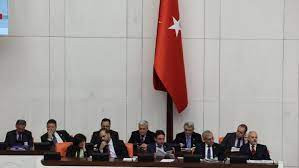Finland Becomes 31st NATO Member After Turkey’s Approval

Finland Becomes 31st NATO Member After Turkey’s Approval: The Secretary General of the North Atlantic Treaty Organization (NATO), Jens Stoltenberg, has announced that Finland has become the alliance’s 31st member, thanks to Turkey’s unanimous vote. Despite Russia’s opposition to Finland’s membership, Turkey’s approval allowed NATO to be expanded. Finland shares a long border of over 1,300 kilometers with Russia, and its decision to join NATO was prompted by security concerns following Russia’s invasion of Ukraine in 2022. However, Sweden’s application to join NATO has been declined by Turkey and Hungary.
March 2023 Current Affairs Quiz
For many years, some have argued that Finland’s membership in NATO would help to strengthen its defence capabilities, while others have expressed concerns about potential tensions with neighbouring Russia. With Finland’s membership, NATO now includes most of the countries in Europe and North America.
What is NATO and its History?
NATO, or the North Atlantic Treaty Organization, is an intergovernmental military alliance established in 1949. It was formed as a collective defense pact between North American and European nations to deter Soviet expansion and protect member states from potential Soviet aggression during the Cold War.
NATO was founded by the United States, Canada, and ten European countries: Belgium, Denmark, France, Iceland, Italy, Luxembourg, the Netherlands, Norway, Portugal, and the United Kingdom. Since then, the alliance has grown to include 31 countries. The organization operates on the principle of collective defense, with members agreeing to mutual defense in response to an attack by an external party. NATO also engages in crisis management, conflict prevention, and peacekeeping operations around the world.
To become a member of NATO, a country must meet the following criteria:
- Political and economic stability: A stable democratic government, a functioning market economy, and a track record of respecting human rights and the rule of law are all required.
- Military readiness: The country must have a capable and well-trained military that can contribute to the collective defense of the alliance. This includes a commitment to investing in defense and maintaining modern equipment.
- Commitment to collective defense: The country must be willing and able to contribute to the collective defense of the alliance, including by supporting other member countries in times of need.
- Compatibility with NATO values: The country must share the values of the alliance, including a commitment to democracy, individual liberty, and the rule of law.
- Geographic proximity: While not an official requirement, NATO tends to give preference to countries that are in close geographic proximity to existing members, as this makes it easier to coordinate and deploy forces in times of crisis.